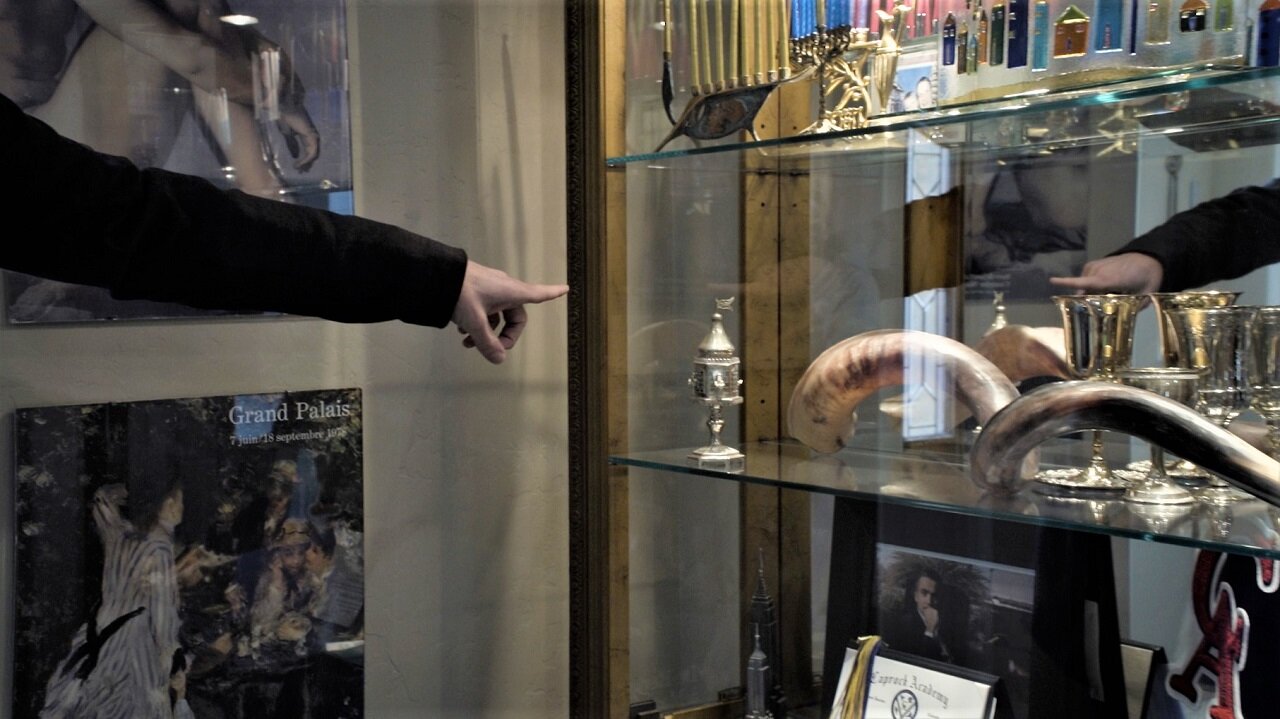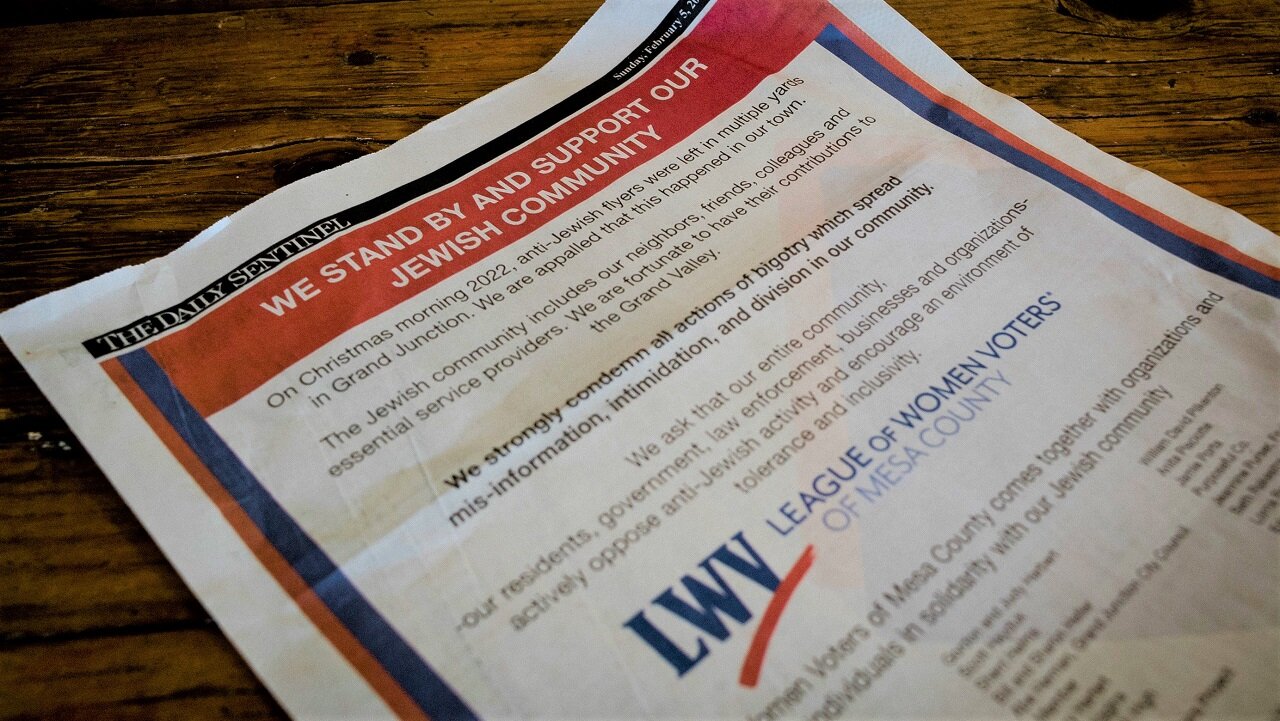City councilor proposes proclamation against antisemitism in Mesa County

FRUITA, Colo. — “I always felt like the United States was a safe place to be Jewish and to be a Jew,” said Fruita City Councilor Matthew Breman.
A mass shooting at Tree of Life synagogue in the Squirrel Hill neighborhood of Pittsburgh in 2018 altered Breman’s perspective. That October day, a shooter killed eleven people and injured six more at a Sabbath service.
[Related: Picking a jury for the Pittsburgh synagogue shooting trial won't be easy]
“On the day of the massacre, everything changed,” Breman said. He spent his childhood in Squirrel Hill, a predominantly Jewish area. Growing up, he attended synagogue at Tree of Life.
“That's where I was bar mitzvahed. That's where I went to Hebrew school two to three days a week,” Breman said. “It's part of who I am to this day. Even though I wasn't an active member at the time [of the shooting], it's still part of my family and it's still part of where I grew up.”
For Breman, who has lived in Fruita since 2005, he felt the effects of violence and racism acutely this past December, when someone distributed antisemitic material on the lawns of Grand Junction homes. Breman decided he needed to address it.
“People often ask me if I'm a Jew or Jewish or if I'm Jew-ish,” Breman said, “The reality is, it's not a straightforward answer. It's a complex kind of heritage with religion and everything else mixed in.”
The narrow view of the antisemite, Breman explained, wipes away the individual attributes of what it means to be Jewish, forming them into a single idea.
And like every human, Breman himself is complex. Take, for instance, his political affiliation: as an ideological Republican, Breman believes in keeping the government's involvement in private lives to a minimum. While not overly religious, Breman considers himself culturally Jewish, carrying an interpretation of Jewish teachings that includes responsibility for bringing justice into the world. Following a long career as an executive at Disney and a manager at Nickelodeon, Breman and his wife moved to Fruita in 2005 with the hope of creating local impact. With equality as an overarching aim, they volunteered and contributed to causes including United Way, an international fundraising affiliate.
Entering Breman’s house, a glass case displays several menorahs, dreidels, kiddush cups, and a shofar, all traditional Jewish objects that remind the family of their roots. The case also holds plaques and memorabilia in recognition of the family’s service to the community.

In 2020, Breman was elected to serve on Fruita’s city council. Today, he feels a call to use this position of leadership to shine a light on the increase of antisemitic acts in the United States. Following December’s antisemitic acts, Breman implored fellow city councilors to sign a proclamation of support for the Jewish community at a February workshop meeting.
“I didn't expect any kind of pushback,” Breman said. Still, “I was really pleasantly surprised that it wasn't just, ‘Oh, yeah, we'll do it.’ It was the eagerness and, ‘Of course, we have to do this.’”
Breman proposed reading the proclamation at a council meeting, and asked other councilors if they would feel comfortable putting their names on the proclamation on a full page of The Daily Sentinel. Their response was a unanimous yes, Breman said.
Fruita city councilor Aaron Hancey said to the request, “I support having my name, and Fruita City Council” in the newspaper. Councilor James Williams agreed. “I think it carries more weight,” he said.
The League of Women Voters of Mesa County gathered support from the community, including the names of around 200 other prominent citizens and organizations showing solidarity for the Jewish community.

Breman’s response to recent incidents has been thoughtful and deliberate. “How do you fight antisemitism?” he questioned. “If you make it a big issue, I think it can encourage it. But if you say nothing, that also encourages it. So it's trying to find that balance, and where to have those meaningful conversations with people.”
Many share in Breman’s dilemma: to amplify or ignore hate messaging.
Referring to antisemitic hate — including several situations that have cropped up on the Western Slope throughout his time here — Breman said, “most people are surprised that it even exists nowadays. And I think the more people you can talk to, the more people you can make aware of it, the more it helps quash it … I don't think it's ever going to go away, but I think we can make it socially not acceptable.”
Breman created a yard sign reading, “We know the threats and the hate is real. Antisemites do not intimidate us.”
His sign created several positive interactions with his neighbors, Breman said. “After putting up the sign … I had neighbors who I didn't know actually stop by and knock on my door and ask about it,” he said. “And it was very, very touching. And they're like, you know, ‘We're here.’ One guy was like, ‘I love you, you're my neighbor, and we’re glad you're here.'”
“The fight against antisemitism isn't just about the Jews,” Breman said. “It's really about hatred and bigotry towards any group in this country. It's about so many different groups, and so many different minorities that are also facing similar social intolerance. I think it's everybody's job to help fight for everybody.”
Cullen Purser is a multimedia journalist at Rocky Mountain PBS. You can reach him at cullenpurser@rmpbs.org.
